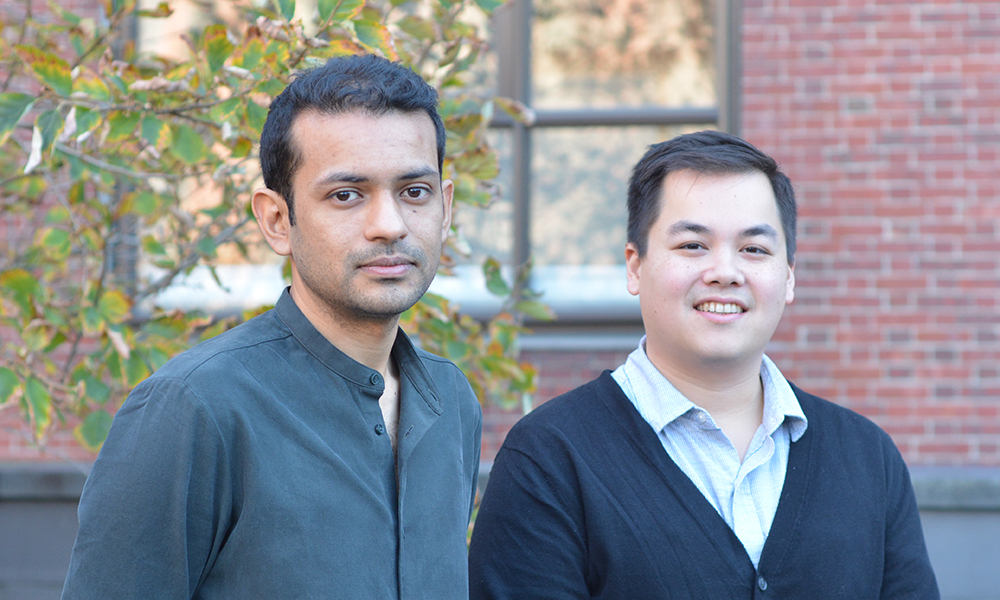Two MCB postdocs–Dhananjay “DJ” Bambah-Mukku of the Dulac Lab and Nicholas Tran of the Sanes Lab–have received fellowship funding from the National Institutes of Health in support of their research.
Bambah-Mukku received the “NIH Pathway to Independence Award”, and Tran received the “National Research Service Award” (NRSA). Both awards are designed to which provide mentorship and funding to their recipients as they transition into leading their own labs.

Dhananjay “DJ” Bambah-Mukku
Project Title: “Development and Function of a Neural Circuit Underlying Sex-specificity of Social Behavior.”
Bambah-Mukku’s research focuses on a simple question: “Why do males and females respond differently to the same sensory and social cues?”
For a long time, many researchers looked for architectural and circuitry differences that could explain why males and females of the same species exhibit diverging behavior. However, a growing body of evidence suggests that male and female brains largely use the same circuitry and architecture but may be expressing genes differently. Bambah-Mukku will be tracking gene expression in rats at the age when these sex-specific behaviors become more dramatic–puberty.
“Little is known about how changes in circulating hormones and neural activity during puberty activate dormant neural circuits for sex specific behaviors – a process likely to be associated with coordinated changes in synaptic strength and gene expression,” Bambah-Mukku wrote in his project summary.
“In preliminary experiments, I have genetically identified a subset of neurons in the mouse hypothalamus that gate behavioral sex-specificity,” he continued. “ In the research proposed here, I will leverage the expertise of the Dulac and Murthy labs to investigate the development and function of this neural circuit associated with behavioral sex-specificity using a combination of viral-genetic tools, gene expression profiling and electrophysiological recordings.”

Nicholas Tran
Project Title: “Subtype-specific Retinal Ganglion Cell Degeneration and Regeneration Following Optic Nerve Crush”
When nerves in the central nervous system are crushed or cut, the damage to the cells’ axons–the part of the neuron that typically conducts electrical impulses towards downstream synaptic partners–is often permanent and catastrophic to the neuron. Most damaged neurons die, with a few mysterious exceptions. Neurology researchers have long been looking for ways to protect injured neurons or to help those neurons grow back, but Tran is hoping to gain added perspective by applying next-generation sequencing technologies to the question.
“To understand why some neurons fare better than others, I am investigating the transcriptional differences between retinal ganglion cell populations that are more or less resilient to injury,” Tran wrote in his project summary. “I am implementing single-cell mRNA sequencing approaches to track gene expression changes across all retinal ganglion cell types following optic nerve injury either alone or in combination with established neuroprotective interventions. Our goal is to determine how some cells escape degeneration and identify ways to improve the survival and axonal regeneration of susceptible populations.”
by Diana Crow


